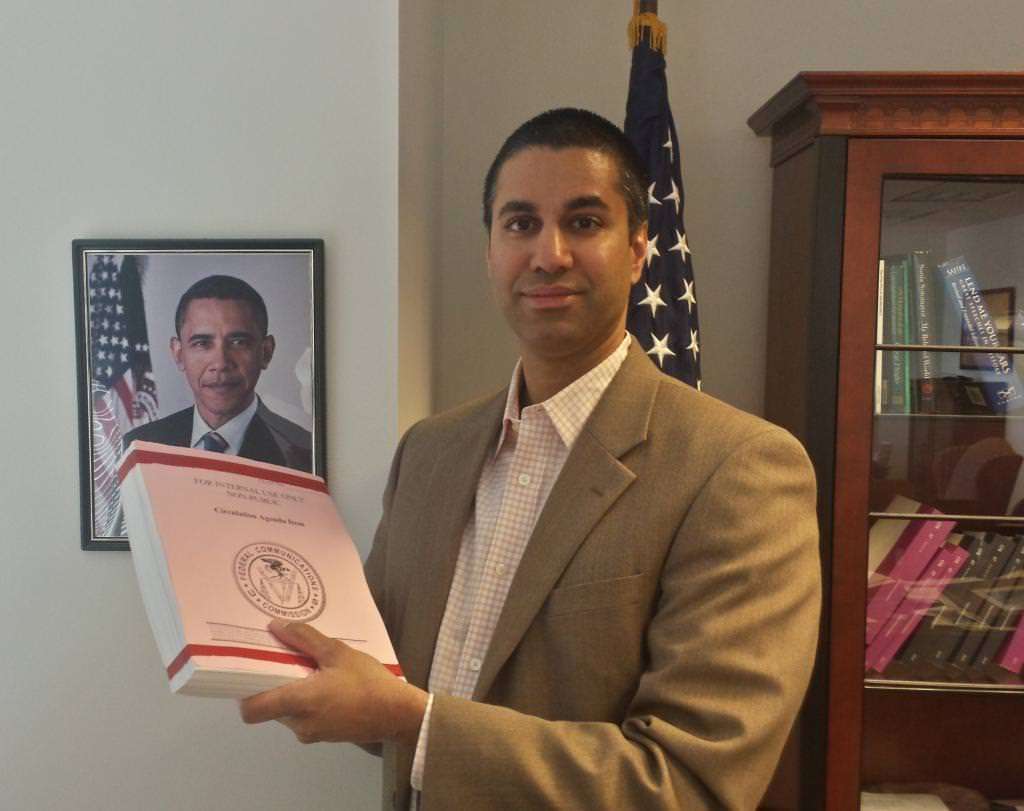Netflix May Already Regret Its Support for the FCC's New Net Neutrality Rules
The agency's new Internet rules will only make the Web worse.

Over at Wired, Geoffrey Manne, the Executive Director of the International Center for Law and Economics, has one of the very best critical takes on the Federal Communications Commission's decision last week to overhaul the way broadband Internet is regulated in order to enforce net neutrality rules. Manne makes a couple points that are worth repeating.
The first is that the new regulations give the agency license to go far beyond what supporters of the Title II/net neutrality regime have said is necessary—and, in doing so, may actually inhibit more valuable and effective consumer protection regulations from the Federal Trade Commission:
You were sold a bill of goods when activists told you net neutrality was all about protecting "the next Facebook" from evil ISPs. Think about it: If you're "the next Facebook," who do you think is more worried about you? Your ISP, or Facebook itself? If the problem is between Facebook and its potential challengers, hamstringing ISPs is an awfully roundabout way of dealing with it. Especially because we already have a regulatory apparatus to deal with issues related to competition: antitrust laws.
But consider this irony: Now that ISPs are regulated under Title II as common carriers, the Federal Trade Commission can't enforce its consumer protection laws against them anymore.
That doesn't mean there won't be antitrust enforcement, but we did just hobble our most significant and experienced consumer protection authority. That seems like a mistake if we're enacting rules that purport to protect consumers.
This may not be exactly how it all plays out, but it's not a bad bet. We don't know for sure, of course, in part because we haven't even seen the full FCC order yet; indeed, according to an agency statement earlier this week, it hasn't even been finalized yet.
But with rules as broad, sweeping, and untested as what's been described so far, you can pretty much always be sure of two things: that over time, the regulatory agency in charge will claim additional authority—especially as leadership and agendas change—and that there will be a variety of unintended consequences. That's what Manne is getting at here.
In a similar vein, Manne notes that the expansiveness of the new rules make them a prime target for corporate rent-seeking. In fact, the rules are already the product of rent-seeking campaigns on behalf of the big Internet content companies that supported them:
Even staunch net neutrality supporters like EFF [the Electronic Frontier Foundation] worry about the breadth of the FCC's new "general conduct" standard. Couple that with language that invites complaints and class action lawsuits, and suddenly a regulation claimed to ensure "just and reasonable" conduct becomes a rent-seeking free-for-all.
But surely ISPs have it in for Netflix, right? Actually, Comcast is the only ISP (out of the literally thousands that are now regulated under Title II) that competes with Netflix. And the evidence shows that the problems allegedly arising from that competition were caused by Netflix, not Comcast. Did we really just enact 300 pages of legally questionable, enormously costly, transformative rules just to help Netflix in a trivial commercial spat?
This is worth dwelling on for a moment, in part because Netflix was one of the most visible and widely covered supporters of the FCC net neutrality push that led to last week's decision. The company "[relished] its role as the corporate leader in the fight for net neutrality," National Journal reported last September—and in doing so, backed a position that "would protect its profits" while "earning goodwill from Web activists and liberals." Netflix, in other words, is the company best positioned to benefit from these rules.
Here's the punchline: It's barely been a week since the FCC's Title II order passed, and the video service is already expressing regret. Here's what CFO David Wells said at an industry conference earlier this week, according to Variety: "Were we pleased it pushed to Title II? Probably not. We were hoping there might be a non-regulated solution." The company still insists that it is pleased with the ruling overall, but wishes that there had been no broadband regulation.
But the point is that even Netflix, the poster-child for corporate support of the FCC's move, is, at minimum, not entirely pleased with the outcome. So if anything, the Title II overhaul might be even worse than what Manne suggests: We might have enacted 300 pages of drastic, dubious regulations just to help a company that didn't even want all those rules in the first place.
Watch ReasonTV's interview with FCC Commissioner Ajit Pai, who voted against the new rules, below:


Show Comments (161)